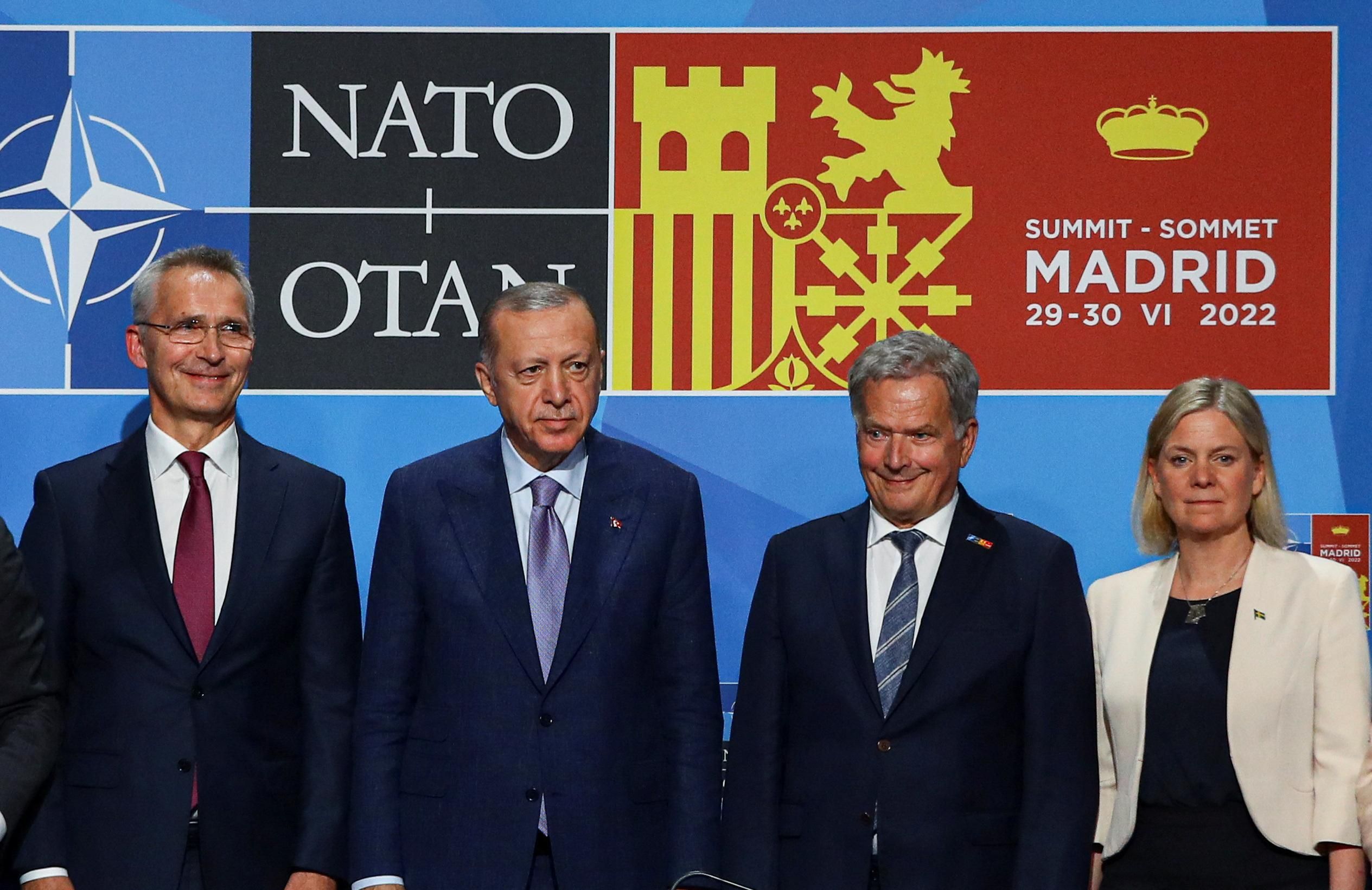What We're Watching: Turkey backs off, Texas migrant tragedy, bombshell Jan. 6 testimony, Iran woos BRICS
Turkey opens NATO door to Finland and Sweden
The first day of the NATO Summit in Madrid brought concrete results. Turkey, Finland, and Sweden came to an agreement that addresses Ankara’s security concerns and paves the path to Finland and Sweden joining NATO. The Nordics’ joint bid for membership, inspired by Russian aggression in Ukraine, was at the center of the summit’s agenda. Accession demands consensus, and Turkey had raised objections, making security-centric demands from Stockholm and Helsinki that threatened to slow the process. In response, Sweden and Finland have suspended a 2019 arms embargo against Ankara and agreed to cut assistance to the People’s Protection Units, an armed group affiliated with the Kurdistan Worker’s Party, Turkey’s enemy. Some of Ankara’s requests still need to be discussed, but Turkey is walking away from its veto option, swinging the doors open to Finland and Sweden’s membership in NATO. Vladimir Putin, meanwhile, has said the expansion doesn’t threaten Russia but warned that Moscow would respond to any extension of military infrastructure into that region.
Will latest Jan. 6 testimony move the needle?
The ongoing January 6 hearings on Capitol Hill took a notable turn on Tuesday when a former aide to then-White House Chief of Staff Mark Meadows provided new details about what went down that day. Crucially, Cassidy Hutchinson – who had unfettered access to the president’s inner circle – testified that Trump encouraged rioters to descend on the US Capitol knowing that many of them were armed with weapons. Hutchinson also testified that Trump said former Vice President Mike Pence was deserving of the mob’s wrath because he rebuffed Trump’s plea to reject the 2020 election results. She said she cleaned up a mess from Trump throwing his ketchup-soaked lunch against the wall in anger after former Attorney General William Barr gave a news interview in which he said he had not found widespread voter fraud. Hutchinson also said that Meadows, her former boss, later sought a pardon for his role in the events on that fateful day. Some legal analysts say that Trump allegedly knowing members of the crowd were armed and encouraging them to march to the Capitol could open him up to criminal charges. But will it impact American voters who are more deeply divided than ever ahead of November’s midterms?
Texas migrant tragedy and Biden’s immigration dilemma
The dual problem of a broken US immigration system and chronic instability in Central America was highlighted again this week when a truck filled with dozens of dead migrants was discovered near San Antonio, Texas. At least 46 people – including Mexican, Honduran, and Guatemalan nationals – were found dead in an abandoned tractor-trailer amid 100-degree temperatures. At least 16 others, including children, were taken to the hospital, where four later died, raising the death toll to 50. This tragedy, the deadliest US immigration event in recent years, highlights the ongoing challenge President Joe Biden faces in making good on his promise for a more "humane" immigration system. So what has the administration been trying to do? First, it sought to lift the Trump-era “Remain in Mexico” policy, which requires migrants seeking entry to the US to wait in towns south of the border while their asylum applications are considered. That case is now awaiting a decision by the Supreme Court after Republican states sued to keep it in place. Biden has also sought to lift the Trump-era Title 42, which allowed the US to stop processing asylum claims due to COVID. For now, a federal court has banned Biden from lifting the law, which leaves the president open to mounting criticism from the left flank of his party.
